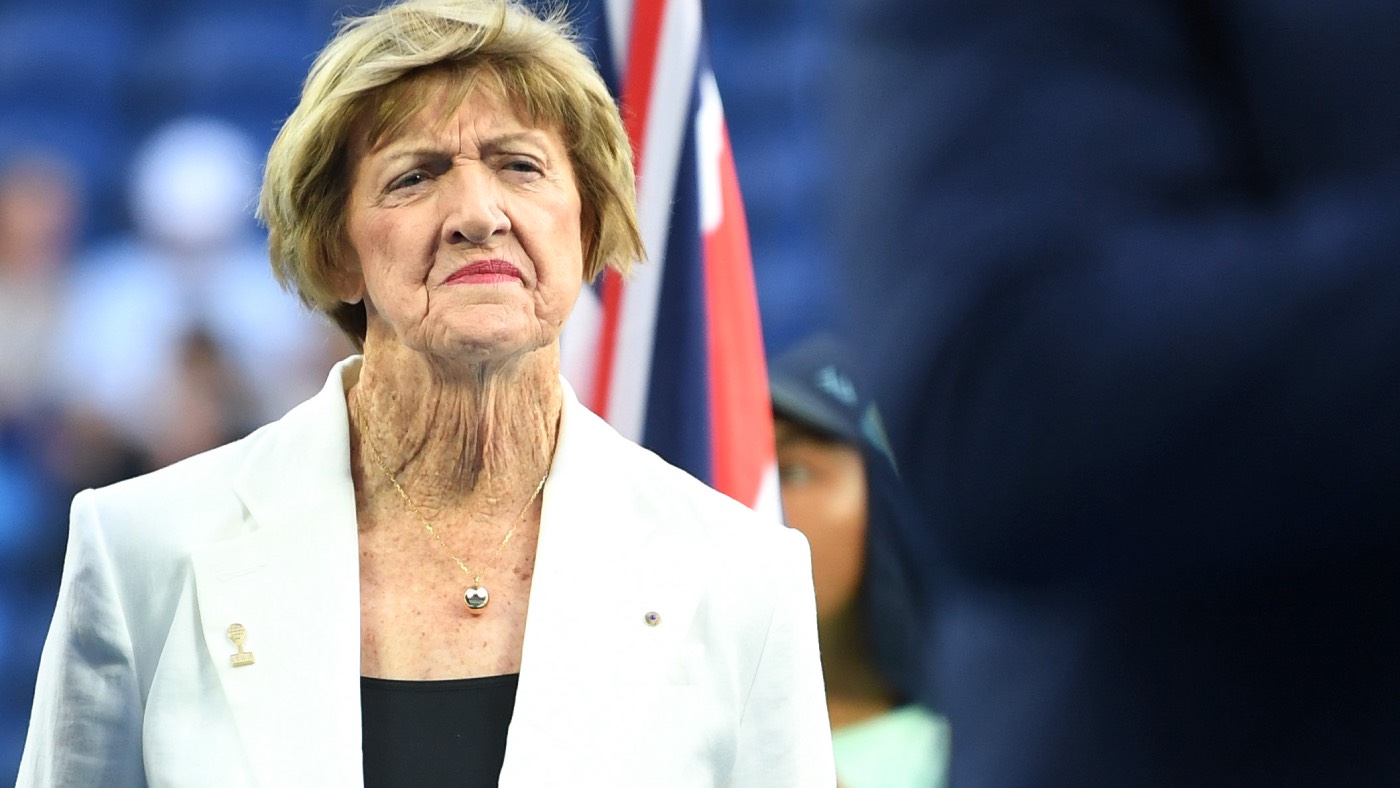McEnroe and Navratilova protest: who is Margaret Court?
Tennis stars object to arena being named after legend with controversial views

A free daily email with the biggest news stories of the day – and the best features from TheWeek.com
You are now subscribed
Your newsletter sign-up was successful
John McEnroe and Martina Navratilova have staged a protest demanding that the Margaret Court arena in Australia is renamed.
As the Australian Open headed into semi-finals, the tennis legends unfurled a banner with their proposed new name of the second biggest tennis court at Melbourne Park.
They object to it being named after Margaret Court because of her views on LGBT issues and apartheid.
The Week
Escape your echo chamber. Get the facts behind the news, plus analysis from multiple perspectives.

Sign up for The Week's Free Newsletters
From our morning news briefing to a weekly Good News Newsletter, get the best of The Week delivered directly to your inbox.
From our morning news briefing to a weekly Good News Newsletter, get the best of The Week delivered directly to your inbox.
Speaking in 1970, Court, who holds the most major titles of any professional player, said of South Africa's apartheid system: “South Africans have this thing better organised than any other country, particularly America.”
More recently, she described Navratilova as a “great player” but said: “It's very sad for children to be exposed to homosexuality.”
Navratilova and McEnroe’s banner proposed that the court be renamed the Evonne Goolagang Arena. Goolagang is Australian former number one player who is known, says Sky News, as “a trailblazer in indigenous Australian tennis”.
After the conclusion of her veterans doubles match yesterday, Navratilova climbed into the umpires' chair to address the remaining crowd, as part of the protest, described as a “stunt” by the conservative The Australian newspaper.
A free daily email with the biggest news stories of the day – and the best features from TheWeek.com
“I've been speaking out about an issue for a while now and John McEnroe is here to join me and push the conversation forward...” she said, before she was cut off. The pair then unfurled the banner.
Tennis Australia said of McEnroe and Navratilova's protest: “We embrace diversity, inclusion and the right for people to have a view, as well as their right to voice that view. But the Australian Open has regulations and protocols with respect to how any fan, player or guest can use our facility, the event and the global stage it provides.”
On Monday, Court was honoured in a ceremony marking the 50th anniversary of her Grand Slam. In a statement, Tennis Australia said it was only honouring her sporting achievement and not espousing her views.
While her views are controversial, Court’s place in tennis history is beyond question. The International Tennis Hall of Fame states: “For sheer strength of performance and accomplishment there has never been a tennis player to match her.” She won all four singles Slams in one year in 1970.
Court, who is now a Pentecostal minister, has not issued any response to yesterday’s protest.
–––––––––––––––––––––––––––––––For a round-up of the most important stories from around the world - and a concise, refreshing and balanced take on the week’s news agenda - try The Week magazine. Start your trial subscription today –––––––––––––––––––––––––––––––
-
 The Olympic timekeepers keeping the Games on track
The Olympic timekeepers keeping the Games on trackUnder the Radar Swiss watchmaking giant Omega has been at the finish line of every Olympic Games for nearly 100 years
-
 Will increasing tensions with Iran boil over into war?
Will increasing tensions with Iran boil over into war?Today’s Big Question President Donald Trump has recently been threatening the country
-
 Corruption: The spy sheikh and the president
Corruption: The spy sheikh and the presidentFeature Trump is at the center of another scandal
-
 Epstein files topple law CEO, roil UK government
Epstein files topple law CEO, roil UK governmentSpeed Read Peter Mandelson, Britain’s former ambassador to the US, is caught up in the scandal
-
 Iran and US prepare to meet after skirmishes
Iran and US prepare to meet after skirmishesSpeed Read The incident comes amid heightened tensions in the Middle East
-
 Israel retrieves final hostage’s body from Gaza
Israel retrieves final hostage’s body from GazaSpeed Read The 24-year-old police officer was killed during the initial Hamas attack
-
 China’s Xi targets top general in growing purge
China’s Xi targets top general in growing purgeSpeed Read Zhang Youxia is being investigated over ‘grave violations’ of the law
-
 Panama and Canada are negotiating over a crucial copper mine
Panama and Canada are negotiating over a crucial copper mineIn the Spotlight Panama is set to make a final decision on the mine this summer
-
 Why Greenland’s natural resources are nearly impossible to mine
Why Greenland’s natural resources are nearly impossible to mineThe Explainer The country’s natural landscape makes the task extremely difficult
-
 Iran cuts internet as protests escalate
Iran cuts internet as protests escalateSpeed Reada Government buildings across the country have been set on fire
-
 US nabs ‘shadow’ tanker claimed by Russia
US nabs ‘shadow’ tanker claimed by RussiaSpeed Read The ship was one of two vessels seized by the US military